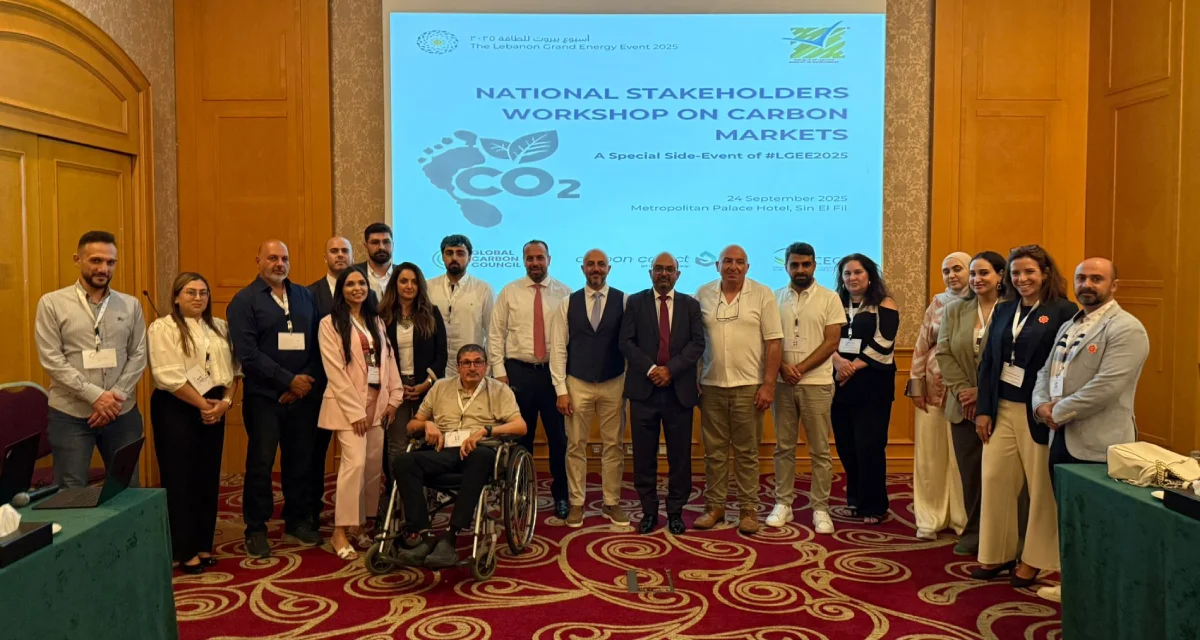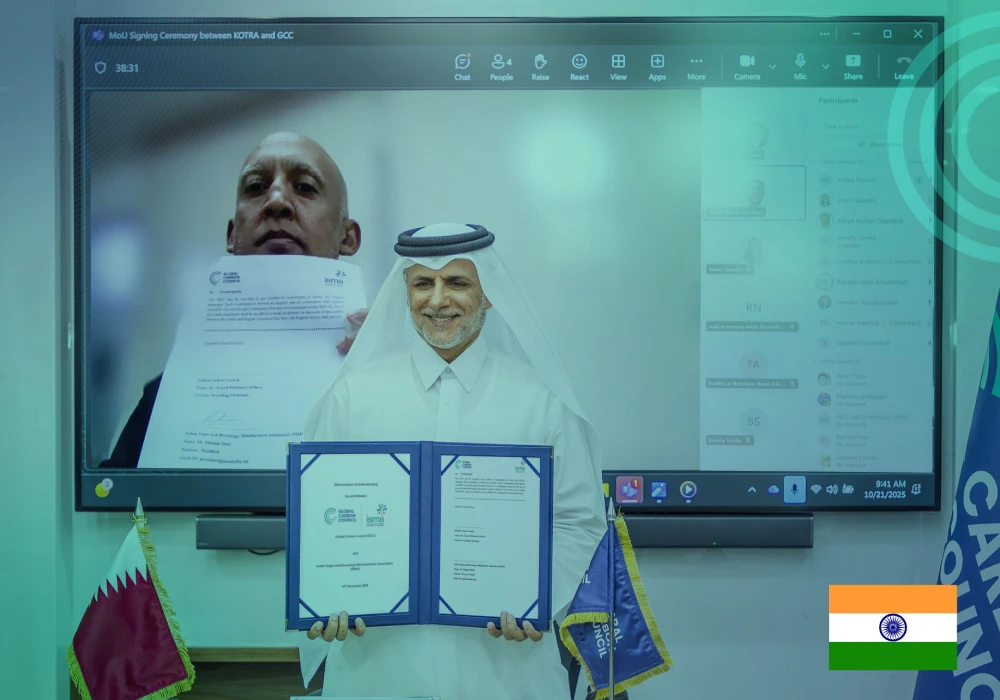
The Workshop on National Stakeholders Dialogues on Carbon Markets, held as part of the Lebanon Grand Energy Event 2025, brought together policymakers, private sector leaders, MRV providers, and government representatives to explore Lebanon’s untapped carbon market potential. The workshop was organized in close partnership with the Ministry of Environment Lebanon, and in collaboration with the Lebanese Center for Energy Conservation (LCEC), the Global Carbon Council (GCC), and Carbon Collect (NGX).
GCC extends its appreciation to the Ministry of Environment Lebanon for inviting and engaging GCC in this important national dialogue on carbon markets.
The speakers at the workshop were Lea Kai, Manager and Advisor of UNDP’s Climate Change projects at the Ministry of Environment; Mohamad El Nahi, Co-Founder and CEO of NGX; and Kishor Rajhansa, COO of GCC.
GCC Highlights Lebanon’s Carbon Market Opportunities
Ms. Lea Kai presented an overview of Lebanon’s NDC and the Ministry of Environment’s efforts to meet its targets through the use of carbon market instruments, including Article 6. A substantial portion of the NDC targets is conditional, meaning they depend on external sources of finance, technology support, and capacity building.
It was discussed that Lebanon’s electricity grid is currently insufficient to meet national demand, with the vast majority of households and buildings relying on diesel generators (and some rooftop solar systems) as their primary source of electricity. This presents a significant opportunity for climate mitigation projects.
Mr. Kishor Rajhansa presented a detailed overview of Lebanon’s climate mitigation potential, noting that most opportunities are distributed in nature—spanning solar and renewable energy, waste management, transport, and agriculture. These distributed opportunities require robust, digitally enabled MRV systems to ensure transparency, accountability, and market readiness.
He also shared GCC’s experience with its fully digitized Energy Access Standard under the World Bank’s ASCENT Program and introduced GCC’s recent procedure for approving Digital MRV solution providers. (Read here.)
A highlight of the workshop was GCC’s Carbon Market Infrastructure (CMI) solution, designed to help countries operationalize Article 6.2 of the Paris Agreement. This digital framework drew significant interest from Lebanese stakeholders, who recognized its potential to unlock climate finance, strengthen transparency, and scale mitigation actions. It was identified as a key solution for Lebanon to establish its carbon markets.
Strong Government Interest
The Ministry of Environment Lebanon expressed strong enthusiasm for collaborating with GCC on the CMI solution. Stakeholders showed keen interest in adopting digital carbon market infrastructure to support Programs of Activities (PoAs) and operationalize Lebanon’s mitigation opportunities.
Looking Ahead
The workshop reaffirmed Lebanon’s readiness to leverage carbon markets as a tool for sustainable development. With GCC’s support, Lebanon is poised to build a credible, transparent, and future-ready carbon market ecosystem, driving climate action while mobilizing international finance.





